





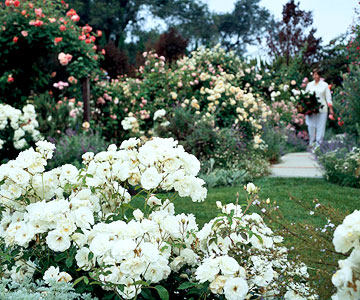
Start your roses off right by making sure you grow them in a good spot. Roses do best in full sun (at least 6 hours of direct sun a day) and well-drained soil that's rich in organic matter.
If your soil has lots of sand or clay, it's helpful to add organic matter, such as compost, before planting them.
continue reading belowNote: There are no roses that do well in full shade, but some varieties tolerate partial shade better than others. If you grow your roses in too much shade, they won't flower as much and they'll be more likely to suffer from pest and disease problems.
If your garden doesn't have full sun, click here to learn about great perennials that thrive in shady spots
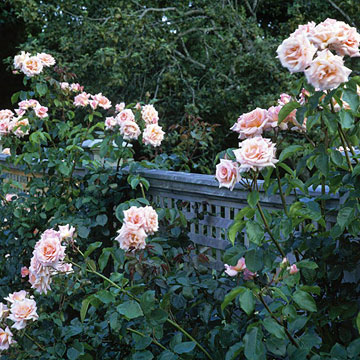
Roses are kind of like people: Each has its own personality. That means you can't expect every rose to perform the same. Select roses that are best adapted for your climate. If you're in the North, it may mean extra-hardy shrub roses; if you're in the South, it probably means roses that don't mind hot, humid summers.
Aren't sure what roses do best where you live? Check with the staff at your local garden center or nursery, your local cooperative extension office, or a local chapter of the Canadian or American Rose Society.
Every year an organization called All-America Rose Selections tests new roses and awards the best performers -- click here to learn about their award-winning varieties
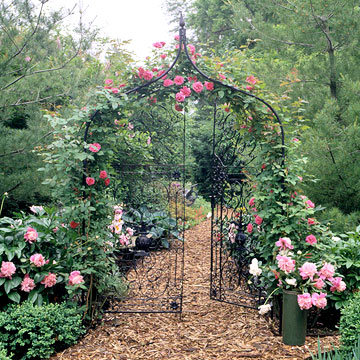
Other than making sure you have the right roses in the right spots, mulching is the best thing you can do to ensure healthy roses.
Mulch makes growing roses easier for a couple of reasons. It helps the soil stay cool and moist longer during hot, dry weather, so you have to water less often. And a layer of mulch over the soil effectively stops many common weeds from growing.
Plus, mulches made from organic matter (such as bark, grass clippings, rotted manure, straw, or shredded leaves) break down and improve the quality of your soil.
It's easiest if you spread mulch after you plant your roses. Most types of mulch work best if they're 1 to 3 inches deep.
Here's a hint: Don't mound mulch right up against the base of your roses. Leave a 1- to 2-inch-wide gap between the mulch and your rose stems.
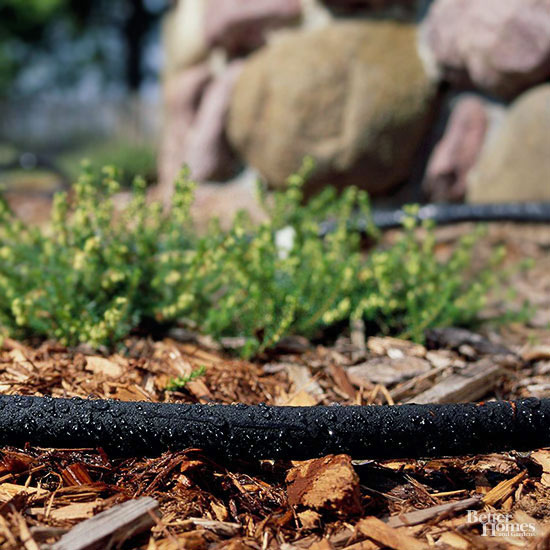
Most roses do best if they get about an inch of water each week during the growing season, depending on your soil type. Gardeners with sandy soil often find their roses need a little more water than those gardeners who deal with clay soil.
You can help keep diseases from attacking your roses (and save money on your water bills) by watering with a soaker hose. Soaker hoses slowly seep water directly at ground level -- and if you cover them with mulch, they lose very little moisture to evaporation.
Sprinklers can be problematic because they send water into the air. Wet rose foliage, especially in the evening or nighttime hours, can encourage fungal diseases. It can also be wasteful to water with sprinklers: On hot, sunny day, some of the water will evaporate before it reaches the ground.
For more tips on maintaining your roses, download our free chart on caring for roses month by month. (Requires Adobe Acrobat software.)
Rose Care January-March
Rose Care April-June
Rose Care July-September
Rose Care October-December
In most areas, early spring is the time to prune your roses. Many experts recommend pruning your roses about the time forsythia blooms in your area.
Note: Exceptions to this include roses that bloom just once a year in early summer. Prune them right after they finish blooming.
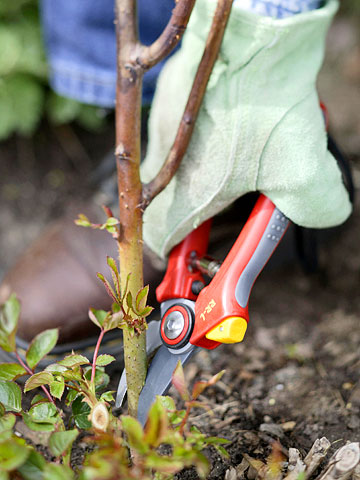
Deadheading, or cutting off flowers after they fade, helps your roses look better and allows the plants to put more energy into producing blooms instead of seeds.
Note: Don't deadhead your roses if you want to enjoy their hips (fruits). Deadheading roses will stop them from producing hips.
Here's a hint: Deadhead your roses with a pair of sharp pruning shears. Clean cuts heal faster and attract less disease than crushed stems.
Roses are commonly attacked by a number of fungal diseases, including black spot, powdery mildew, and rust.
The best way to help your roses fight disease is to keep them strong. Make sure they have good growing conditions and ample moisture and nutrients. Remove dead foliage from your rose garden, too -- it can spread disease.
Copyright © www.100flowers.win Botanic Garden All Rights Reserved